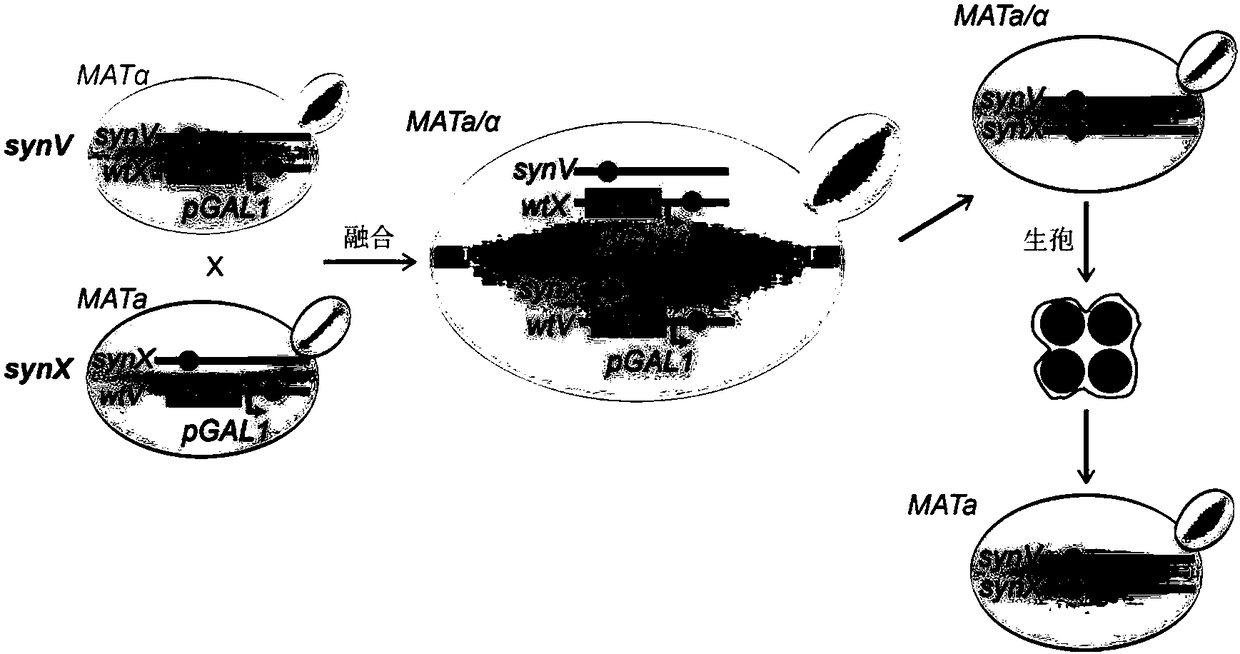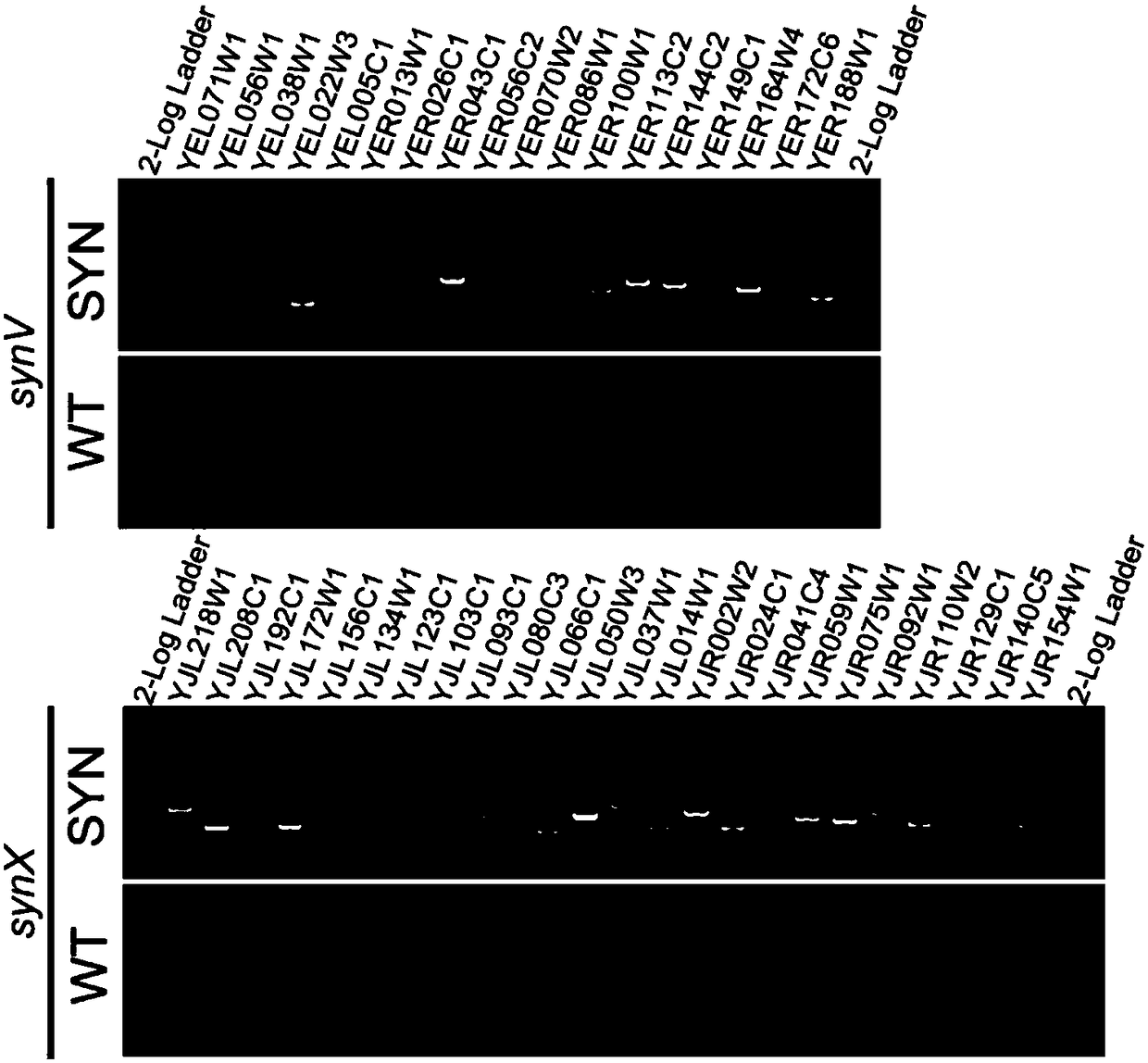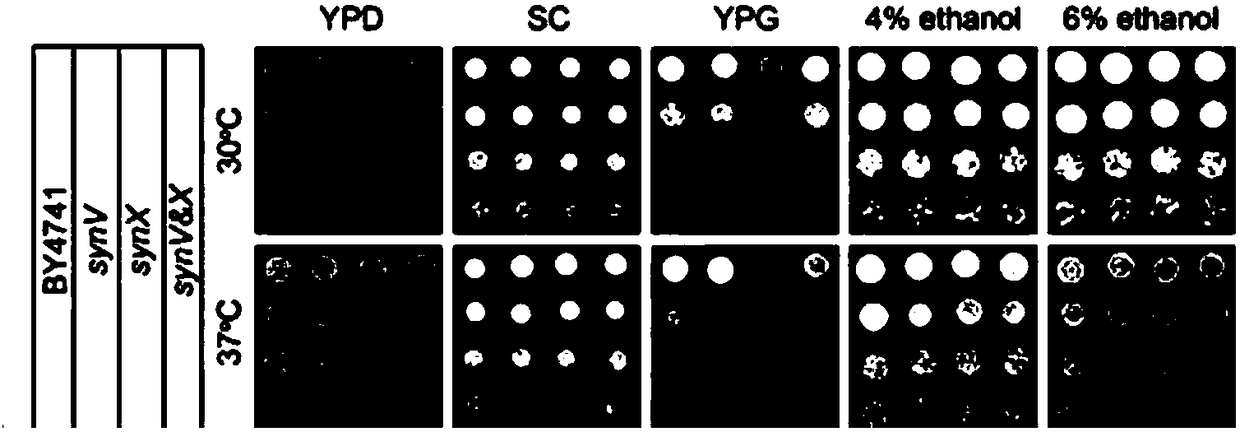Chromosome Transfer Method of Saccharomyces cerevisiae
A technology of Saccharomyces cerevisiae and transfer method, which is applied in the field of microorganisms, can solve the problems that the correctness of the target chromosome cannot be completely guaranteed, and achieve the effect of rapid transfer and realization of transfer
- Summary
- Abstract
- Description
- Claims
- Application Information
AI Technical Summary
Problems solved by technology
Method used
Image
Examples
Embodiment 1
[0056] Using endoreduplication backcross (endoreduplication backcross) technology to realize the transfer of Saccharomyces cerevisiae chromosomes V and X chromosomes, comprising the following steps:
[0057] 1. Using the method reported in the literature (Reid, R.J., et al. Genetics (2008), 180, 1799-808) to add GAL1 before the centromere of chromosome X (wtX) in the strain to be transferred to chromosome V (synV) Promoter and Kl.URA3 nutritional selection marker.
[0058] 2. Using the method in step 1, add the GAL1 promoter and the Kl.URA3 nutritional selection marker before the centromere of chromosome V (wtV) in the strain to be transferred to chromosome X (synX).
[0059] 3. The mating types of the above two strains are opposite, and the above two strains are subjected to cell fusion, and verified by the method reported in the literature (Huxley, C., et al. Trends Genet (1990), 6, 236.), and the diploid strain is selected
[0060] 4. Use galactose to induce the expression...
Embodiment 2
[0075] Validation of the genotype and phenotype of a S. cerevisiae strain carrying synthetic V and X chromosomes involves the following steps:
[0076] 1. Pick a single colony after splitting the spores and culture it overnight at 30°C in 5mL YPD liquid medium to extract the genome.
[0077] 2. Use the genome extracted in step 1 as a template, use primers to verify the mating type, confirm that the colony is haploid, and the mating type is MATa.
[0078] 3. Using the genome extracted in step 1 as a template, use the PCRTag of chromosome V and chromosome X for verification, and confirm that it is a haploid strain of Saccharomyces cerevisiae carrying synthetic chromosome V and synthetic chromosome X.
[0079] 4. The growth characterization of Saccharomyces cerevisiae haploid strains carrying synthetic type V chromosome and synthetic type X chromosome was found to be basically the same as the wild-type Saccharomyces cerevisiae strain BY4741 under the selected verification conditi...
PUM
 Login to View More
Login to View More Abstract
Description
Claims
Application Information
 Login to View More
Login to View More - R&D
- Intellectual Property
- Life Sciences
- Materials
- Tech Scout
- Unparalleled Data Quality
- Higher Quality Content
- 60% Fewer Hallucinations
Browse by: Latest US Patents, China's latest patents, Technical Efficacy Thesaurus, Application Domain, Technology Topic, Popular Technical Reports.
© 2025 PatSnap. All rights reserved.Legal|Privacy policy|Modern Slavery Act Transparency Statement|Sitemap|About US| Contact US: help@patsnap.com



